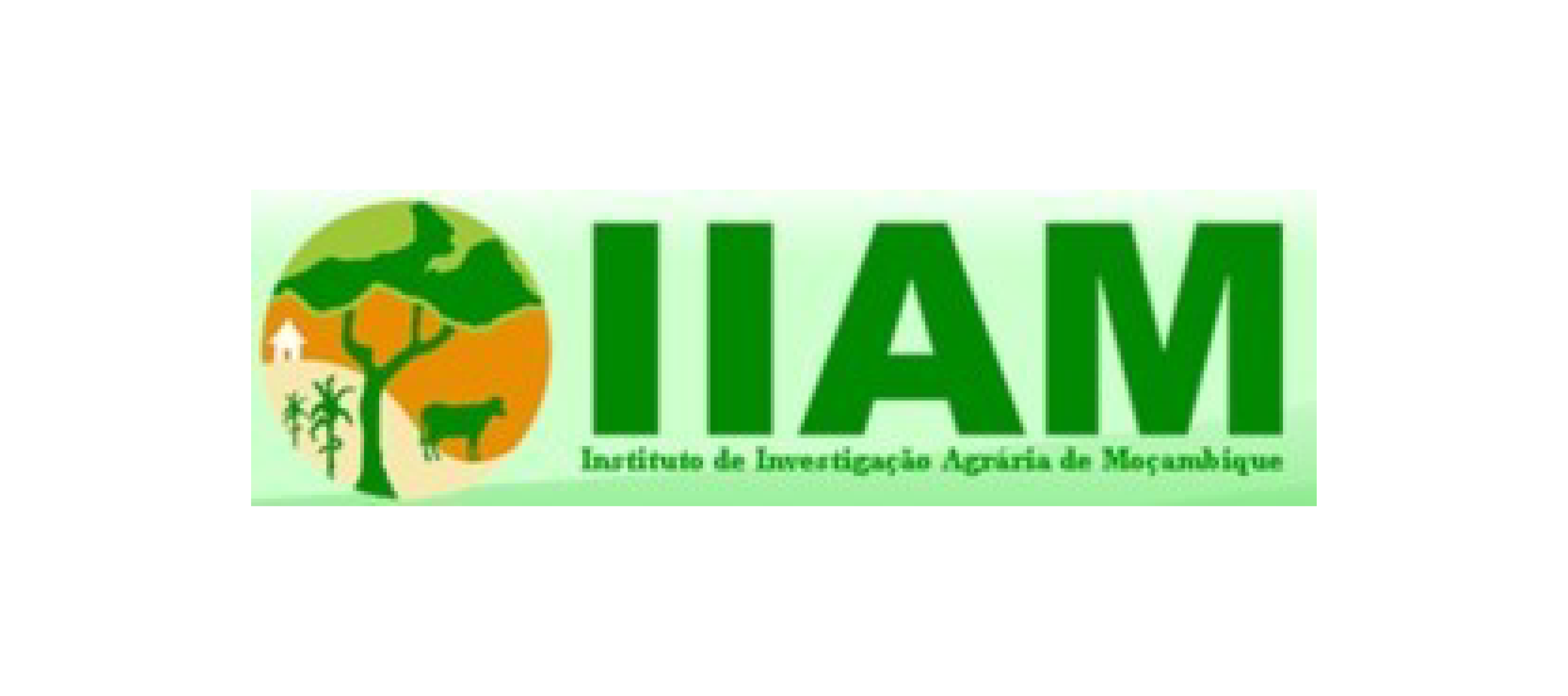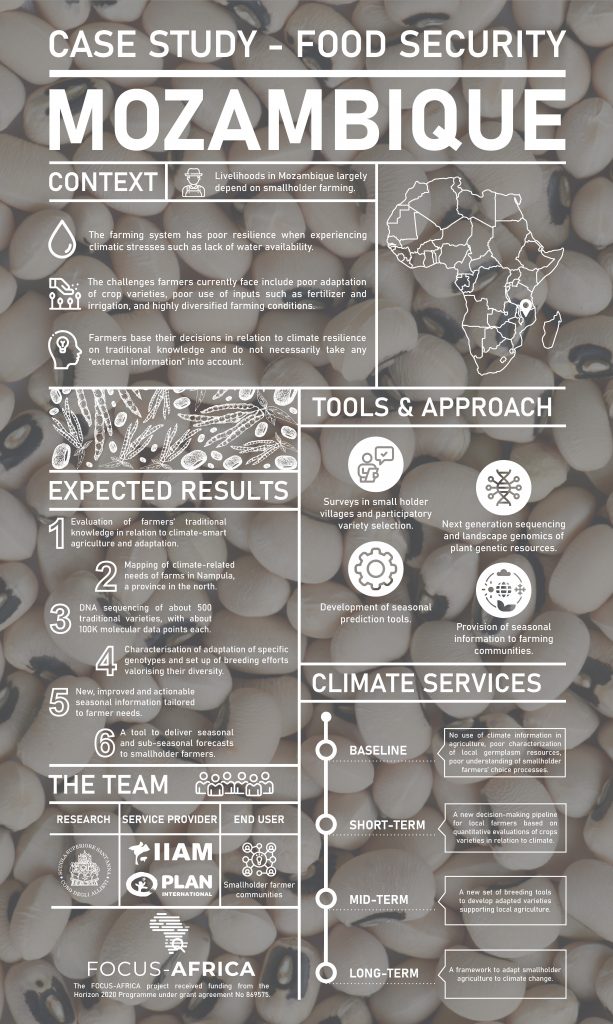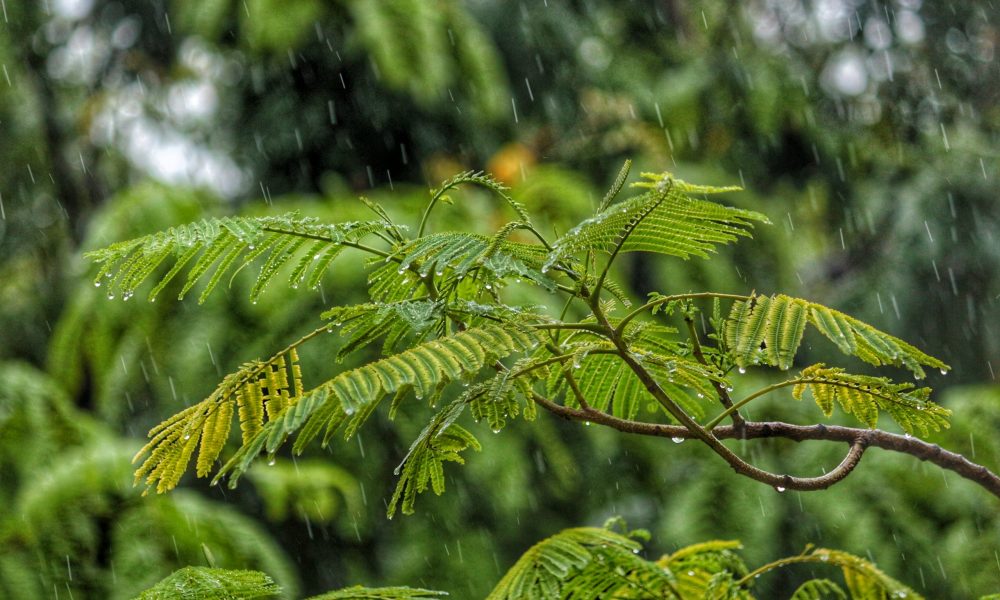Food security in Mozambique
Projects

FOCUS AREA:
Mozambique ranks third among African countries most exposed to weather-related hazards, suffering from periodic cyclones, droughts, and floods (GFDDR 2017 report on Mozambique). Such occurrences especially affect rural and marginal areas, exacerbating food security issues in smallholder farming communities.
Most of the 3.2 million smallholder farmers of Mozambique (accounting for 95% of the agricultural production of the country) grow a combination cereals and legumes in low-input and rain fed settings, making their crop yields vulnerable to rising temperatures and erratic rainfalls. The coastal parts of Nampula province, where this case study will be implemented, have received lower average precipitation, recently experiencing more consecutive dry days (2000–2014 compared to 1981–1999).
This province is classified by FAO one of the riskiest food security areas in the country (FAO – Mozambique Humanitarian Response Plan, March 2019). The current issues can be summarized in: i) poor access to crop varieties with adaptation traits (“climate-ready” varieties) and ii) scarce preparation and resilience. These issues can be tackled with a combination of climate and agronomic research aiming to provide smallholder farmers with the capacity to match desirable climate-ready varieties with improved seasonal forecasting.
The case study employs a multidisciplinary approach encompassing climate science, genomics, agronomy, and social sciences to provide climate services to the end-users along two paths: i) the development of ICT-based tools delivering improved seasonal forecasting, and ii) the identification,
characterization and testing of climate-ready varieties of rice and cowpea.
THE TEAM:



MISSION TRIP REPORTS:
In September and October 2022, partners working on Case Study 3 went to Mozambique, access the full report to this mission:



